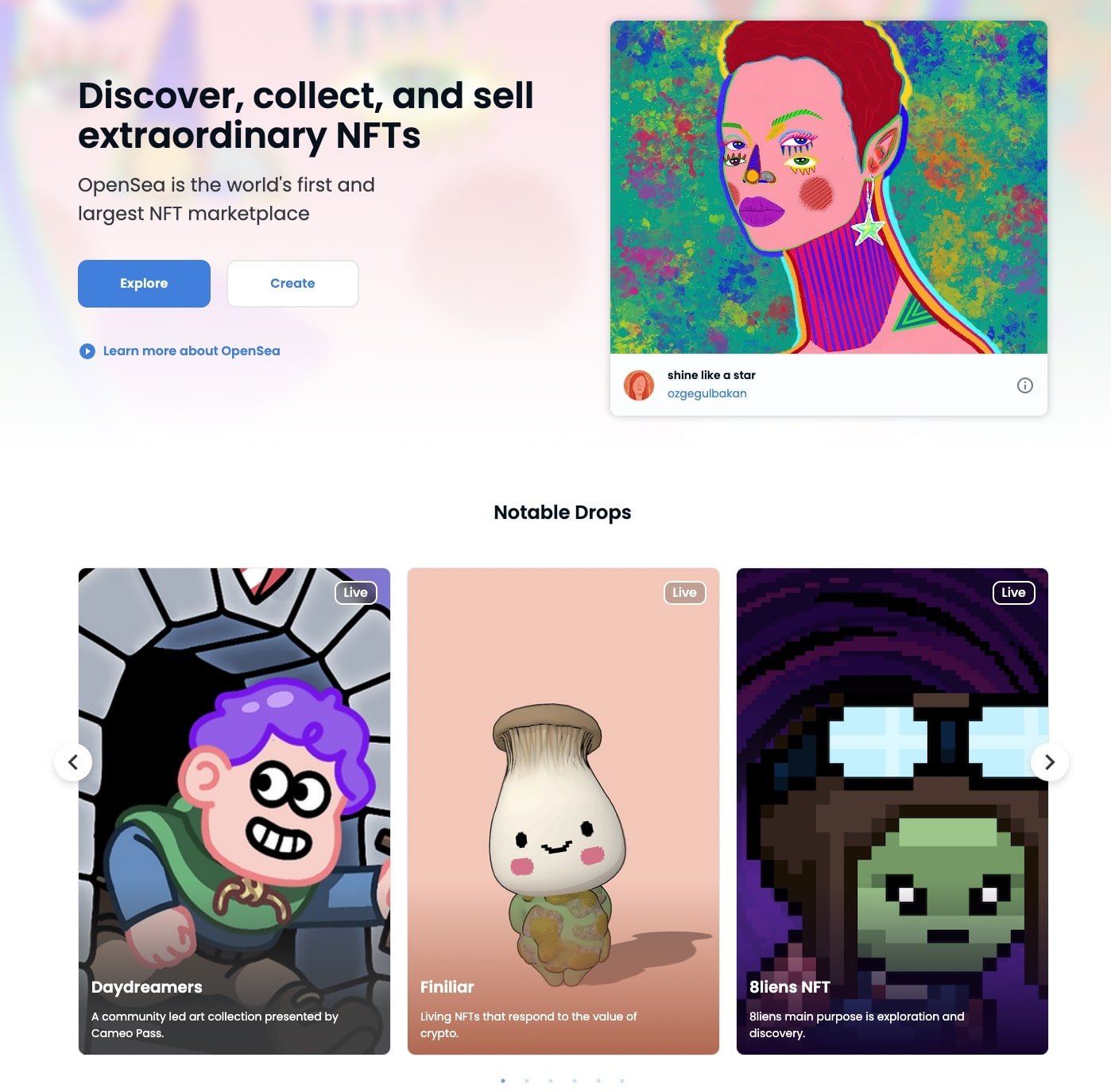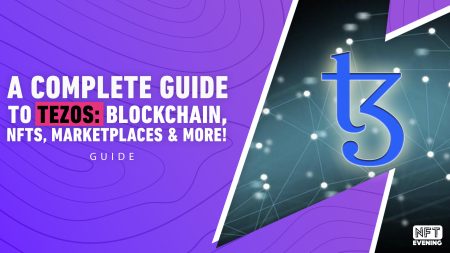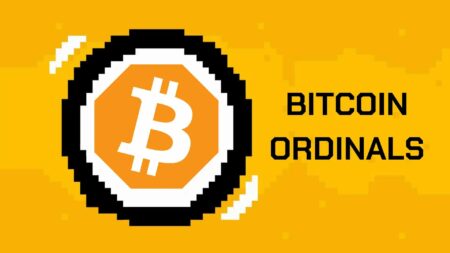The world of Web3 is rapidly evolving. So, it can be overwhelming to keep up with all the new companies and projects entering the space. In this guide, we’ll introduce you to some of the most innovative and influential companies in the Web3 ecosystem this year. From cryptocurrency exchanges and hardware wallets to NFT marketplaces and blockchain development platforms, these companies are at the forefront of the Web3 revolution.
We’ll also discuss some of the fundamentals of Web3, and Web2 companies that are making the leap. Plus, some of the perks of working in this space. Let’s dive in!

What is Web3?
Web3 is a term used to describe the third generation of the World Wide Web. This newest iteration emphasizes the decentralization of the internet and the use of blockchain technology. Web3 is also sometimes referred to as the “decentralized web” or the “web of trust.” This is because unlike traditional web applications that rely on centralized servers to store and manage data, Web3 applications use decentralized networks, such as blockchain networks, to store and manage data. Ultimately, this provides greater security, privacy, and control for users, as well as new opportunities for innovation in areas such as finance, gaming, and social networking.
What is a Web3 company?
A Web3 company is a type of business that uses Web3 technology to build decentralized applications or other products that interact with the blockchain. Significantly, these companies aim to create a more open, transparent, and secure internet where users have more control over their data and digital identities. Moreover, they often rely on cryptocurrency, NFTs, or tokens to power their systems and encourage users to participate in their networks. Examples of Web3 companies include blockchain-based social networks, decentralized finance platforms, and NFT marketplaces.
How do Web3 companies make money?
Web3 companies generate revenue through various business models. Some of these include selling NFTs or cryptocurrencies, charging fees for using their platforms or services, and earning commissions or transaction fees for facilitating transactions on their networks. Now, let’s take a closer look at how this actually works.
One of the most common ways Web3 companies make money is through the sale of tokens or cryptocurrencies. Markedly, these tokens often serve as the native currency of the platform and can be used to access services, products, or content within the ecosystem. Additionally, companies can continue generating revenue through secondary sales and royalties.
Another revenue model for Web3 companies is charging fees for using their platforms or services. For example, decentralized exchanges charge trading fees, while decentralized finance platforms may charge interest rates or lending fees.
Web3 companies can also earn revenue through commissions or transaction fees for facilitating transactions on their networks. For instance, blockchain-based payment platforms charge small fees for processing transactions, while peer-to-peer marketplaces charge commissions on transactions between buyers and sellers.

Top Web3 companies you should know
Now that we have covered the basics, let’s take a look at the top Web3 companies of 2023 (in no particular order):
1. Binance
Binance is a cryptocurrency exchange platform that allows users to buy, sell, and trade various cryptocurrencies using different fiat currencies or other cryptocurrencies. It was launched in 2017 and has become one of the largest and most popular cryptocurrency exchanges in the world in terms of trading volume. Binance offers a wide range of features and services, including trading, staking, lending, margin trading, futures trading, and more. The platform also has its own native cryptocurrency.
2. Ledger
Since its establishment in 2015, Ledger has been growing rapidly. It all began with the idea of using a secure element chip to protect digital assets for crypto enthusiasts. Today, the company has evolved into a cutting-edge platform serving millions of individuals and hundreds of businesses. Their flagship product, the Ledger Nano™ series, has sold over six million units. Furthermore, it remains the most successful security hardware with an unbeatable track record of zero hacks.
3. MetaMask
MetaMask is a digital wallet and a browser extension that allows users to interact with Ethereum-based applications without having to run a full Ethereum node. It was launched in 2016 by ConsenSys, a blockchain software technology company. MetaMask is available as a browser extension for Google Chrome, Mozilla Firefox, Opera, and Brave, and it can be downloaded as a mobile app for iOS and Android devices.
4. Immutable
Immutable is an Australia-based startup founded in 2018. The company is behind Immutable X, a leading Layer 2 solution for NFTs, which is powering the next generation of Web3 games. What’s more, it is a carbon-neutral platform that offers gas-free minting. Immutable is backed by Animoca Brands and has so far raised $279.8 million in funding.
5. OpenSea
OpenSea is the most popular NFT marketplace. Founded in 2017, OpenSea is a non-custodial, peer-to-peer NFT marketplace. It allows users to mint, buy, sell, and view NFTs. At least in theory, no centralised entity controls the assets on the platform. Due to the wide range of NFTs it offers, OpenSea is often called a “Web3 Amazon”. Currently, it is the top marketplace in all-time sales volume, having amassed close to $32 billion in sales so far (at the time of writing).

6. MoonPay
MoonPay enables the purchase of cryptocurrencies and NFTs through its platform. It provides a seamless fiat-to-crypto gateway that allows users to buy and sell digital assets using their credit or debit cards. MoonPay has integrated its services into multiple wallets, exchanges, and NFT marketplaces. This enables users to easily purchase and manage digital assets. Ultimately, the company, established in 2018, has emerged as a top payment infrastructure provider in the Web3 space.
7. Sorare
Founded in 2018, Sorare is a fantasy soccer game where players can buy, sell, trade, and manage a virtual team using NFT player cards. Using the Ethereum-based digital cards, users can create a five-player team to take part in virtual tournaments. Moreover, users can earn weekly rewards in ETH and/or rare cards. As of now, the game features more than 280 officially licensed football clubs.
8. Magic Eden
Magic Eden is the leading NFT marketplace for Solana NFTs. A decentralised NFT marketplace on the Solana network, Magic Eden boasts $1.6 billion in all-time trading volume. On the platform, users can create, buy, sell, and trade NFTs such as digital collectibles and gaming assets. Reportedly, the platform accounts for over 90% market share of secondary Solana NFT trades.
9. NFTY Labs
NFTY Labs is a Web3 venture studio headquartered in Miami, Florida. Essentially, the company focuses on “backing and building the products for tomorrow’s Web3”. In short, NFTY Labs builds community-based tools, standards, and tech for NFTs. At the same time, it is facilitating cross-chain NFT standards and practices.
10. Spatial
Founded in 2016 by Anand Agarawala and Jinha Lee, Spatial helps creators and brands to develop their own metaverse spaces, such as virtual art galleries. With a well-experienced team, the Web3 company offers 3D, Virtual Reality (VR) rooms to create your own NFT or non-NFT art gallery. This way, anyone can display 3D renderings of their sculptures, pottery, moulds, paintings, and more in the metaverse.

Web3 Companies to Invest In
Web3 is a groundbreaking concept built on cutting-edge technologies like blockchain, smart contracts, and AI. By investing in Web3, you have the opportunity to be at the forefront of these disruptive technologies. But, before you invest, it’s crucial to do your own research. Let’s take a look at some companies you could invest in:
Firstly, let’s look at Coinbase. This company is considered a top Web3 stock for those interested in investing in the Web3 space. As a leading American cryptocurrency exchange, Coinbase plays a significant role in the crypto ecosystem by enabling the conversion of cryptocurrency to fiat and providing a wallet that supports NFTs.
Secondly, Meta. Formerly known as Facebook, Meta has made waves in the Web3 industry with its ventures into the Metaverse. Significantly, the company is actively building two Metaverses: Horizon Worlds, a gaming platform, and Workplace, a virtual co-working space. With its massive user base and extensive resources, Meta is poised to be a major player in the future of Web3.
Web2 Companies Moving to Web3
Web2 businesses are diving into Web3 in a big way. Let’s take a look at Starbucks and Nike as examples. Firstly, Starbucks launched Starbucks Odyssey, a customer loyalty program where fans can earn “Stamps” through tasks like ordering specific items or completing online quizzes. Markedly, customers can use these stamps to redeem free drinks, discounted merchandise, and more.
Additionally, Nike made an entrance by purchasing UK-based design studio RTFKT, which specializes in phygital fashion and digital wearables. This allowed Nike to establish a presence in Web3 and partner with famous designer Takashi Murakami for the CloneX NFT collection. Since then, Nike has released limited-edition digital apparel and footwear through RTFKT.
Which Web3 companies are hiring
MoonPay, Rarible, and OKX are all currently hiring for various Web3 positions. MoonPay is a payment gateway that provides a seamless and secure way to buy cryptocurrencies, whereas Rarible is a marketplace for buying and selling NFTs. Additionally, OKX is a cryptocurrency exchange that supports a wide range of cryptocurrencies and trading pairs.
Working in Web3 can offer several benefits for those interested in the space. Firstly, it provides an opportunity to work with emerging and disruptive technologies such as blockchain, smart contracts, and NFTs. Significantly, this can be an exciting and intellectually stimulating field to work in, as it is constantly evolving and pushing boundaries.
Moreover, the Web3 industry is still relatively new, and there is a lot of room for innovation and growth. This means that there are many opportunities for career advancement and the potential to make a significant impact on the industry. You can find weekly job opportunities by signing up to our newsletter here.
All investment/financial opinions expressed by NFTevening.com are not recommendations.
This article is educational material.
As always, make your own research prior to making any kind of investment.








